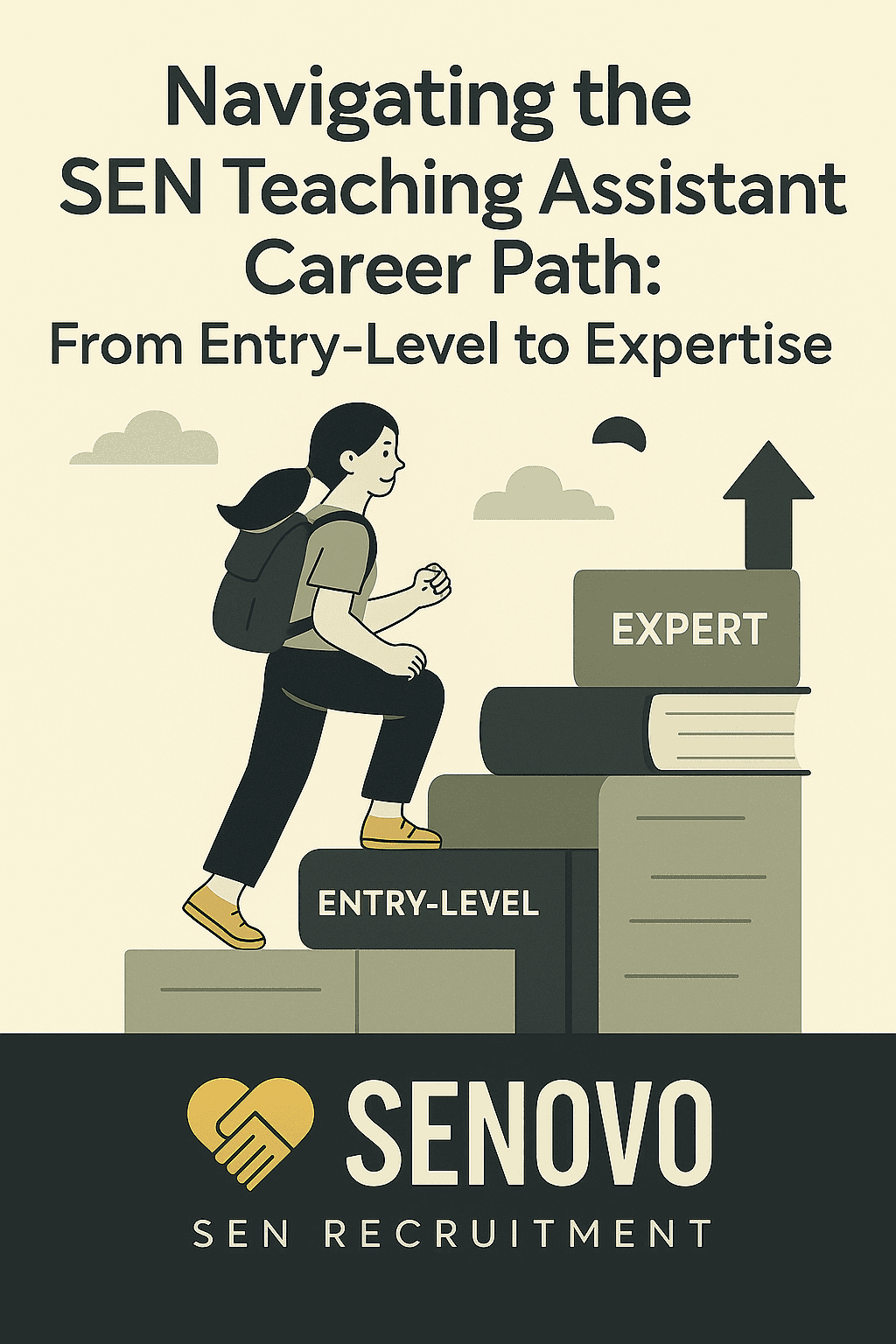Special Educational Needs (SEN) Teaching Assistants play a critical role in ensuring that all children—regardless of ability—receive a supportive, inclusive, and tailored educational experience. If you're considering a career in this vital field, understanding the progression from entry-level roles to expert positions can help you plan a successful and fulfilling journey.

Introduction to the Role of an SEN Teaching Assistant
SEN Teaching Assistants support children with a range of needs, including Autism Spectrum Disorder (ASD), Speech and Language difficulties, Social, Emotional and Mental Health (SEMH) challenges, and Moderate to Severe Learning Difficulties (MLD and SLD). Working under the guidance of teachers and SENCOs (Special Educational Needs Coordinators), they help deliver learning strategies, monitor progress, and often provide emotional and personal care.
Key responsibilities include:
Supporting learning activities in one-on-one or small group settings
Helping students develop social skills and emotional regulation
Assisting with personal care, where required
Collaborating with teachers, therapists, and families to tailor support
Encouraging independence and self-confidence in pupils
Essential Qualifications and Certifications
While some schools accept TAs without formal qualifications, having relevant credentials significantly increases employability and potential for progression.
Entry-Level Requirements:
A good standard of literacy and numeracy (GCSEs or equivalent)
Clear DBS (Disclosure and Barring Service) check
Understanding of safeguarding responsibilities (via KCSIE or similar guidance)
Recommended Certifications:
Level 2/3 Award in Supporting Teaching and Learning in Schools
Level 2/3 Certificate in Supporting Teaching and Learning
CACHE Level 3 Diploma in Specialist Support for Teaching and Learning
First Aid and Team Teach training
Additional qualifications in SEN specialisms (e.g. autism awareness, Makaton, PECS)
Career Progression Opportunities Within the SEN Field
SEN offers a clear path for career development, with many routes to expand your impact:
Step-by-Step Growth:
Entry-Level SEN TA – supporting classroom teachers and students
Experienced SEN TA – leading small groups, mentoring new TAs
HLTA (Higher Level Teaching Assistant) – delivering lessons under guidance
Specialist TA – focusing on specific areas like SEMH, ASD, or complex needs
Pastoral or Behaviour Support Roles – supporting mental health and wellbeing
SENCO (with further study) – leading SEN provision at school level
Education or Therapy Careers – branching into teaching, speech therapy, or educational psychology
Tips for Professional Development and Continuous Learning
The most effective SEN TAs are lifelong learners. Here are a few strategies to stay sharp and relevant:
Attend CPD courses (e.g., safeguarding, autism strategies, trauma-informed practice)
Join professional networks like NASEN or The Education People
Subscribe to newsletters or blogs about SEN policy and practice
Ask for regular feedback from line managers and teachers
Shadow other professionals such as occupational or speech therapists
Insights Into the Daily Responsibilities and Challenges
No two days are the same. Working as an SEN TA is immensely rewarding but comes with its own set of challenges:
Daily Tasks Include:
Preparing materials and activities adapted for SEN pupils
Supporting with behaviour management and emotional regulation
Documenting progress and observations
Liaising with external agencies and specialists
Ensuring consistent routine and structure for pupils
Challenges May Include:
Managing unpredictable behaviours or emotional outbursts
Navigating complex safeguarding scenarios
Balancing personal care responsibilities with learning goals
However, the emotional rewards of seeing a child succeed—however small the step—are immense. You become a consistent, trusted adult in a child’s life, making a real and lasting difference.
Final Thoughts
A career as an SEN Teaching Assistant is not just a job; it’s a commitment to supporting every child’s right to an inclusive education. With the right mindset, training, and progression plan, you can build a meaningful career that evolves with your skills and passion. Whether you're just starting or already working in the field, there’s always a next step forward.
